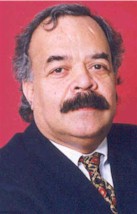
As a hotel executive, the last thing you may want to think about is whether your hotel is considered "green." You are worried about filling your rooms, satisfying your guests, and perhaps getting the big business of government and companies. But being designated as "green" can actually help you do all of these things: it can increase your room-nights, enhance your guests' satisfaction, and boost your business with big customers. This series will show you how. We begin by examining what it means for a hotel to be "green." The word is, of course, shorthand for being environmentally responsible (or sustainable) so as to minimize environmental impacts in purchasing, operations, and plant management. READ MORE

















